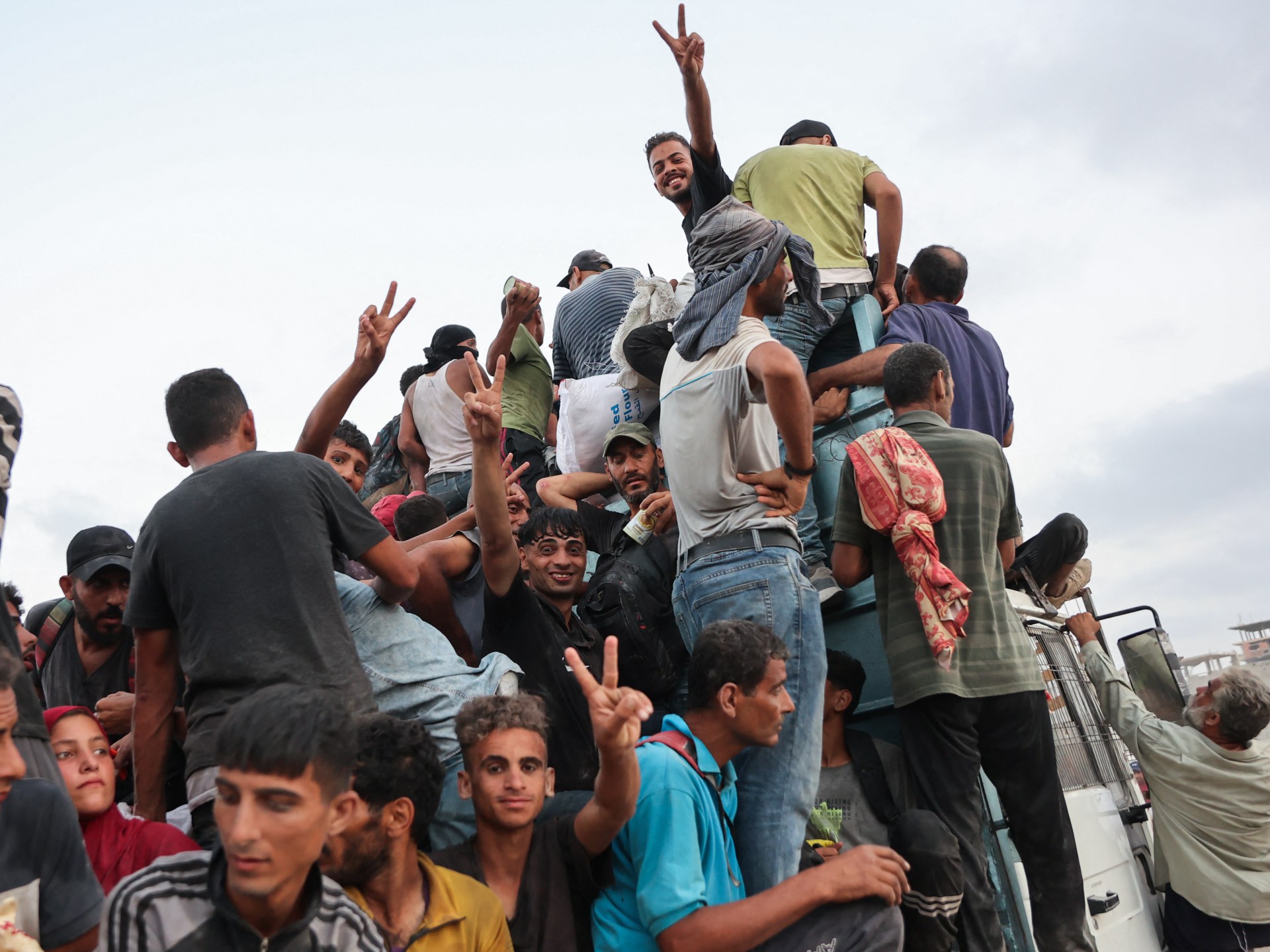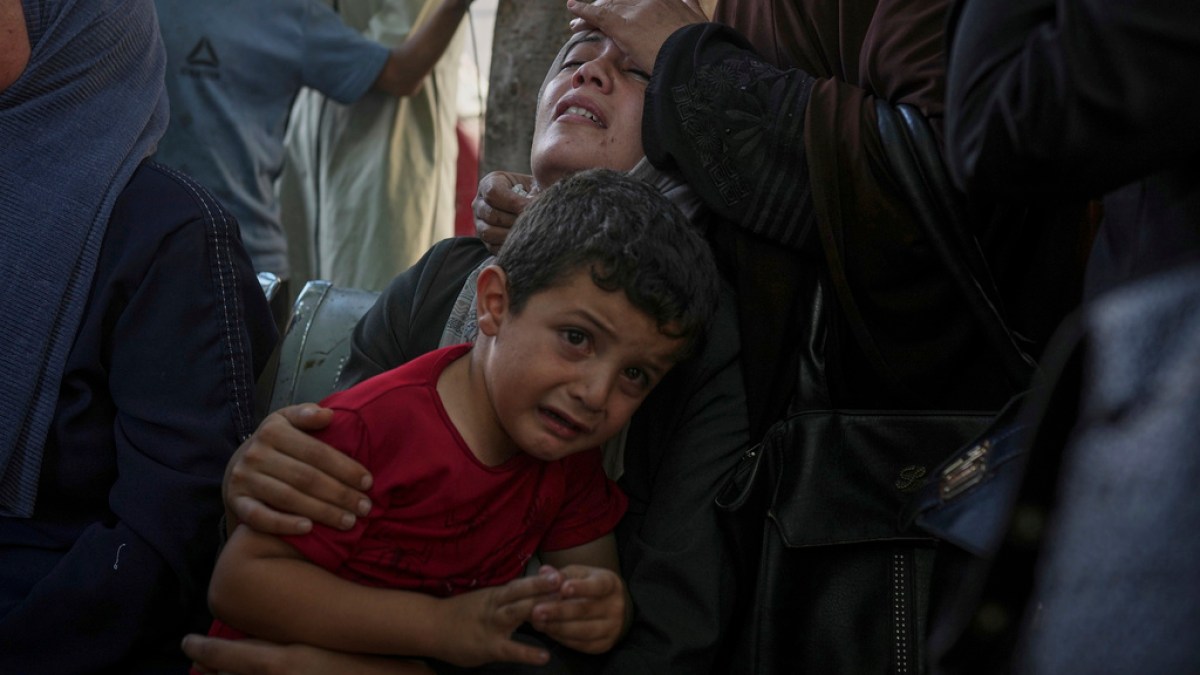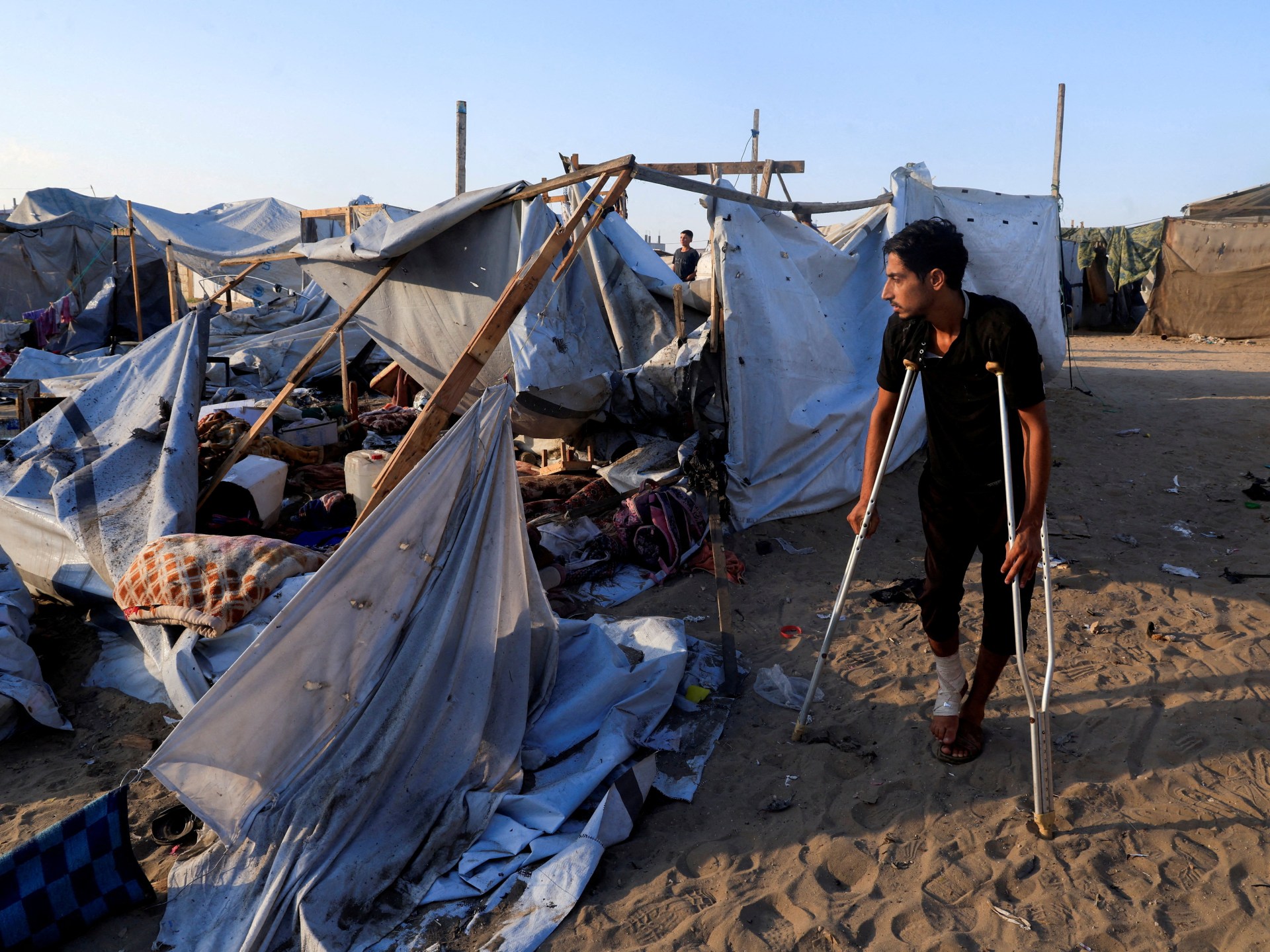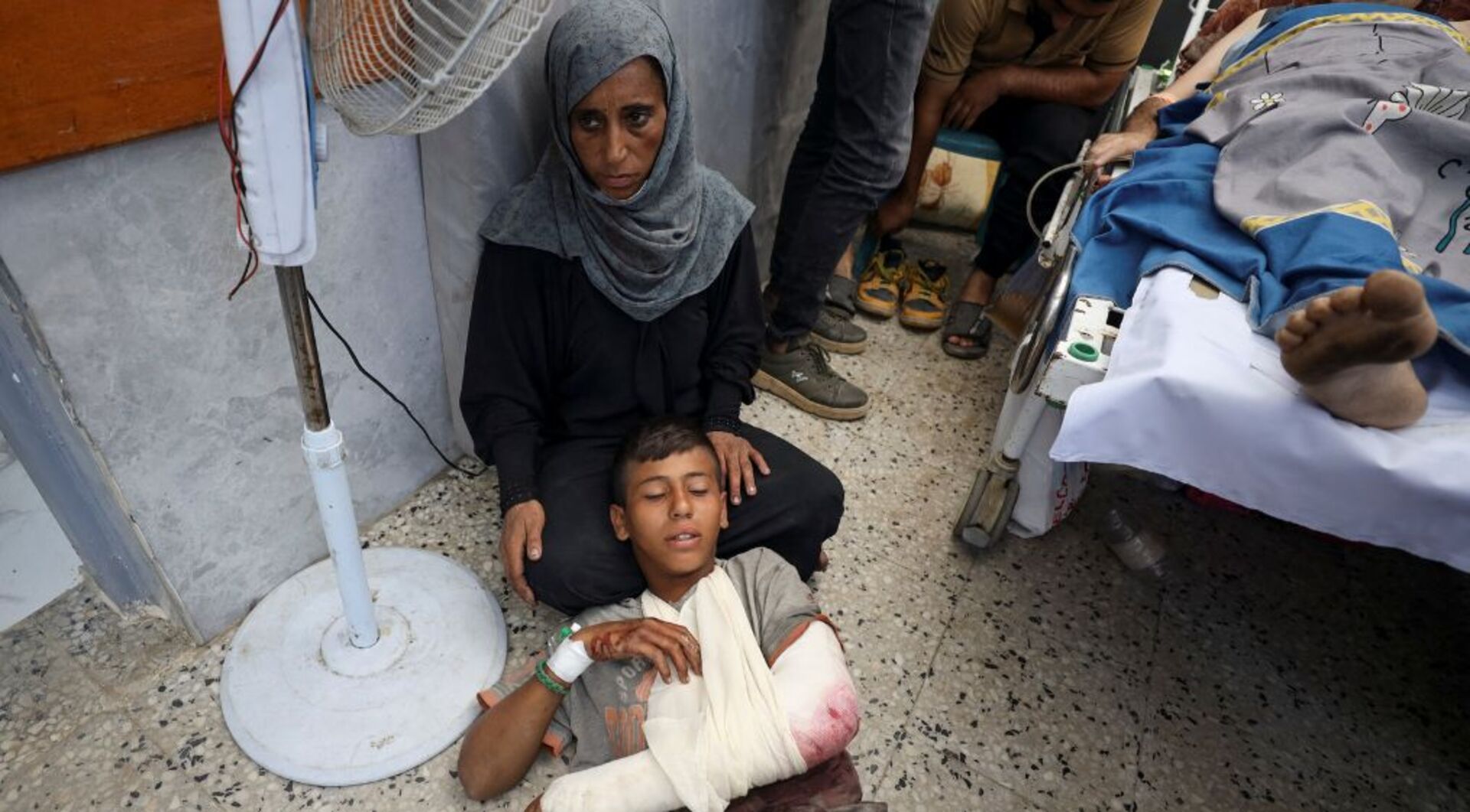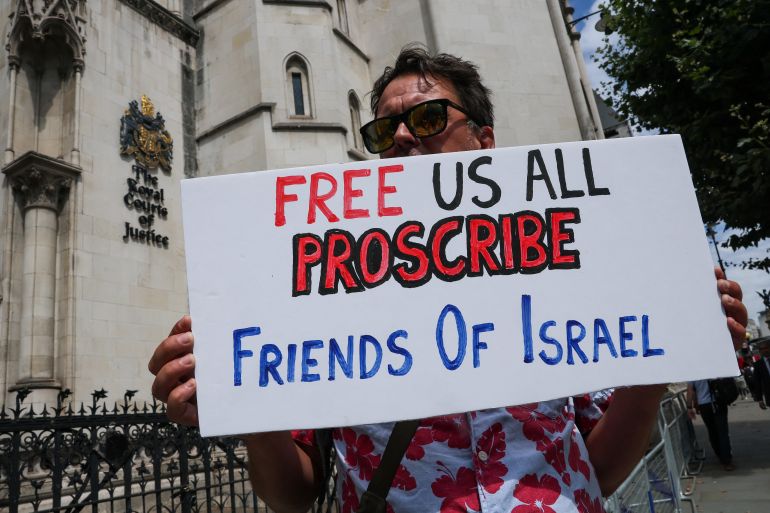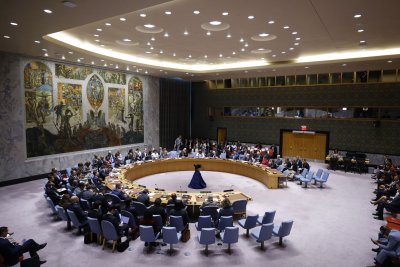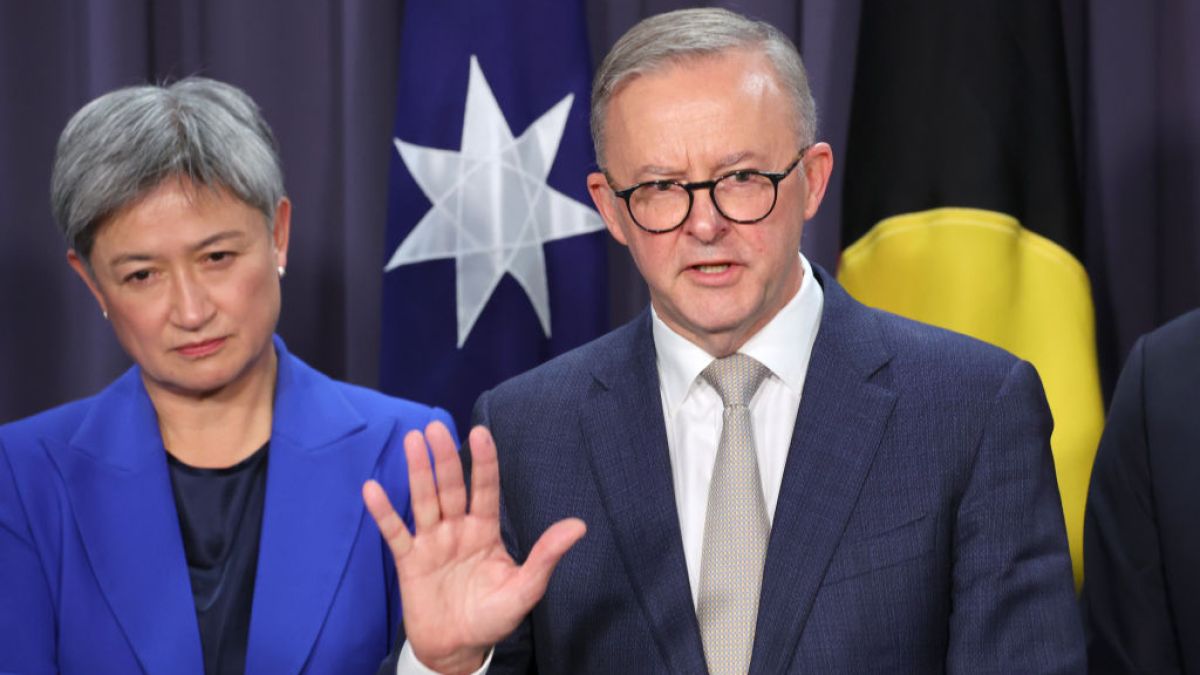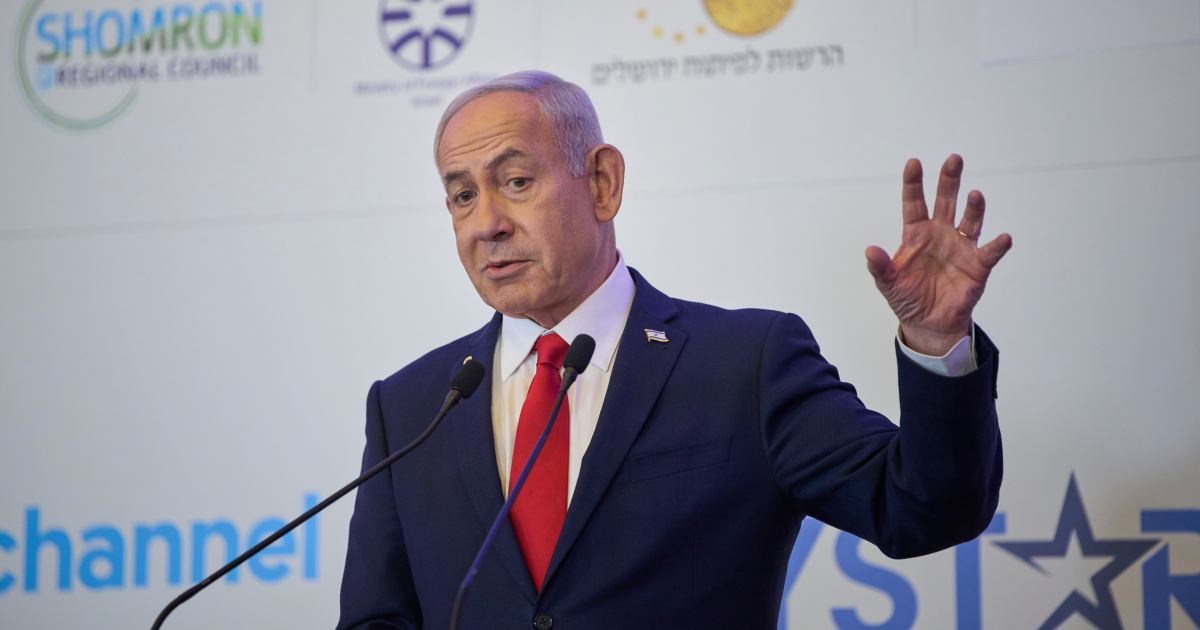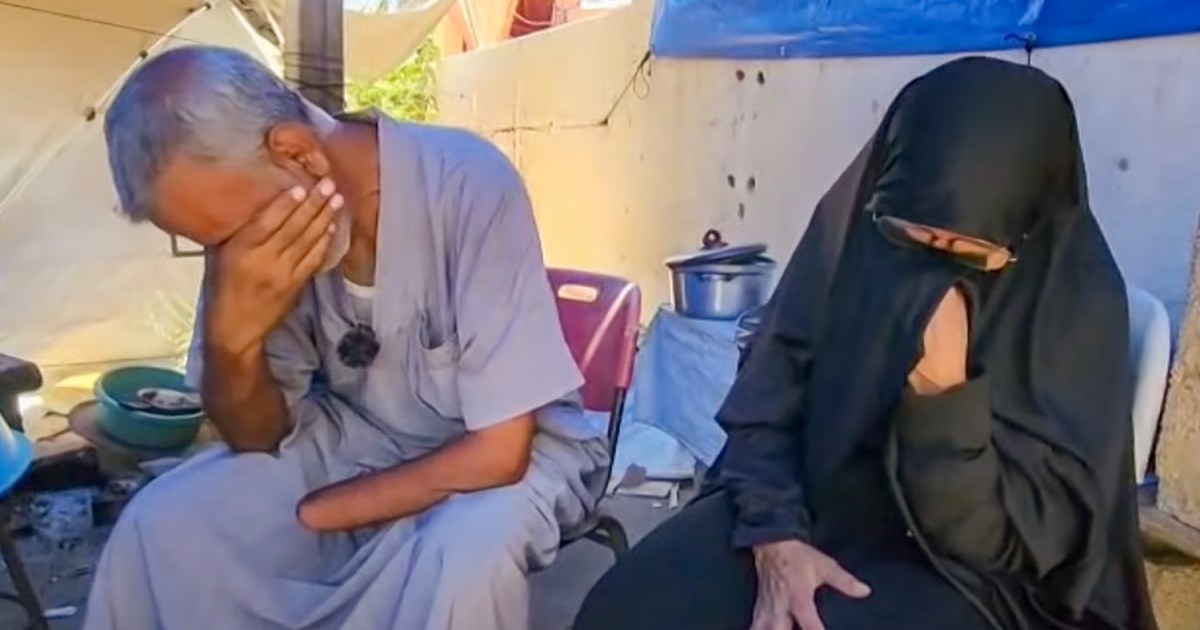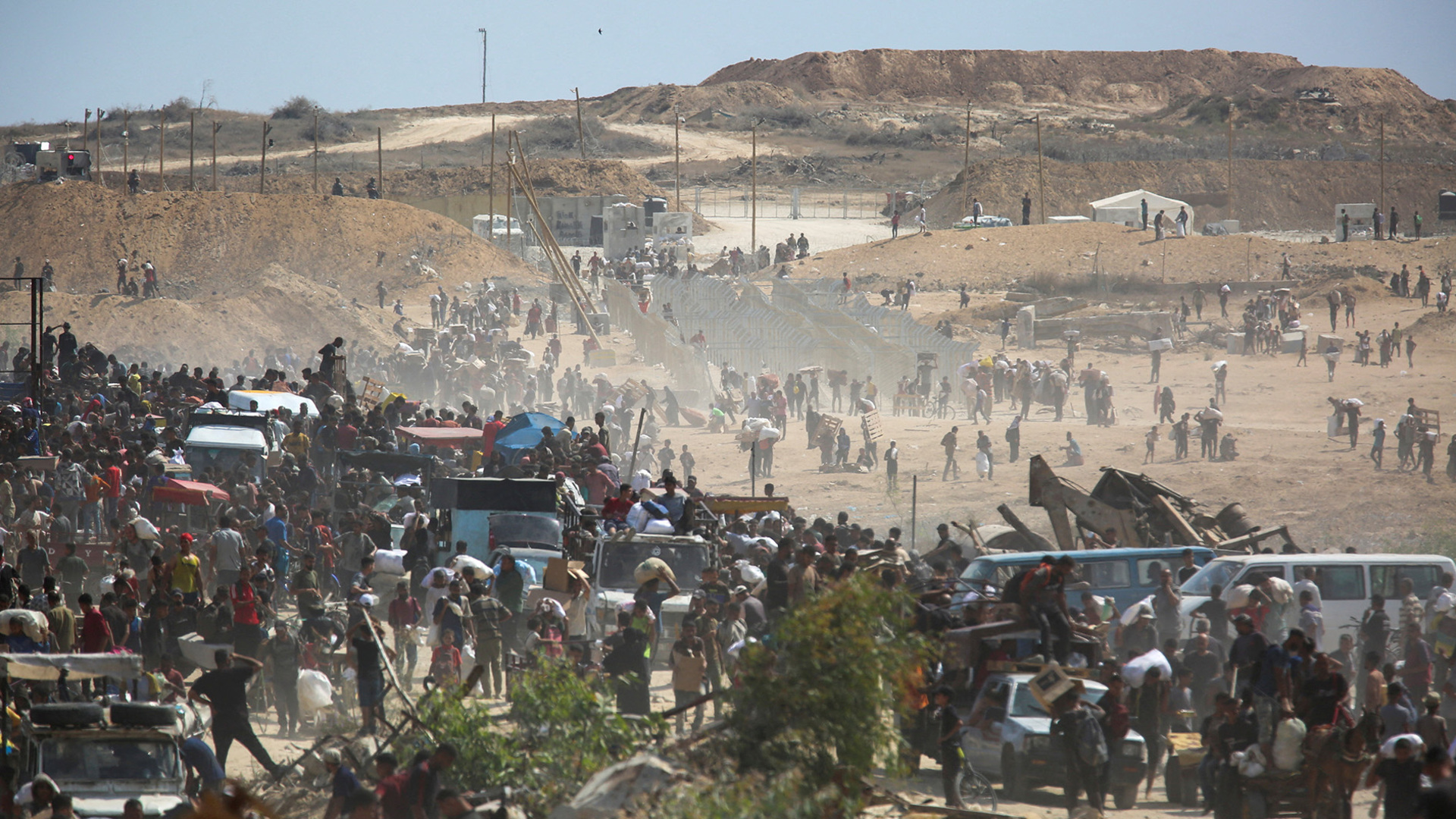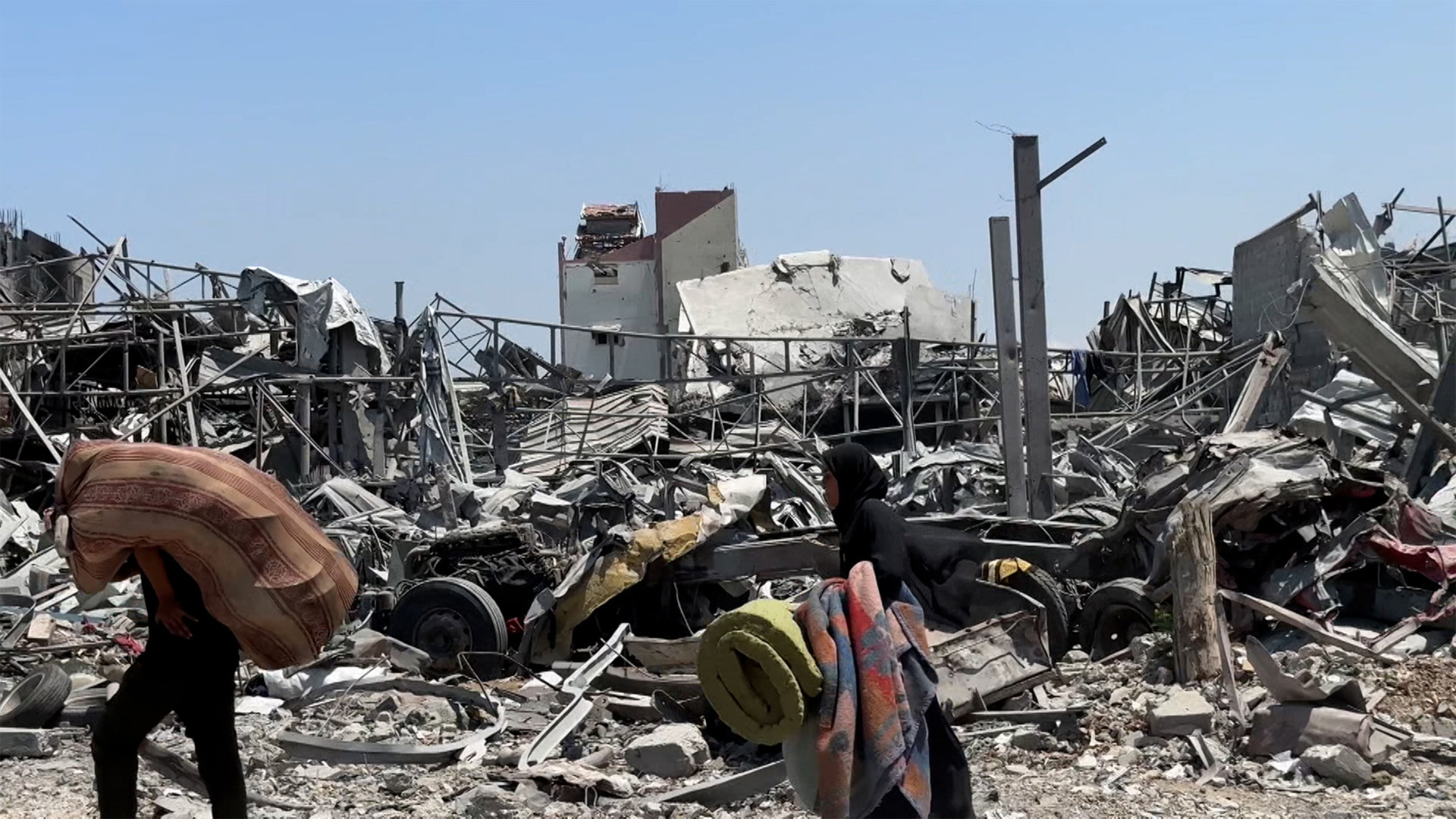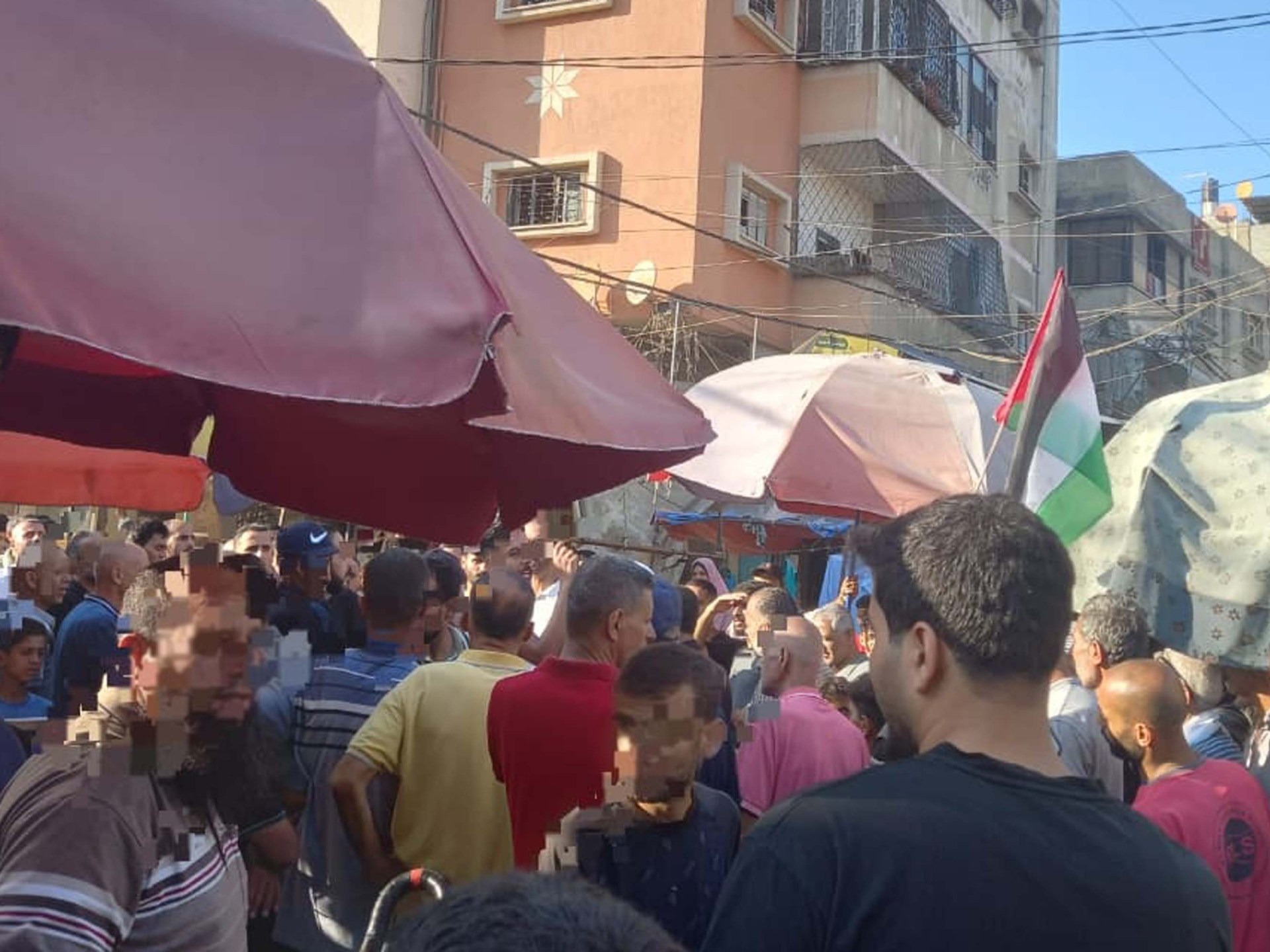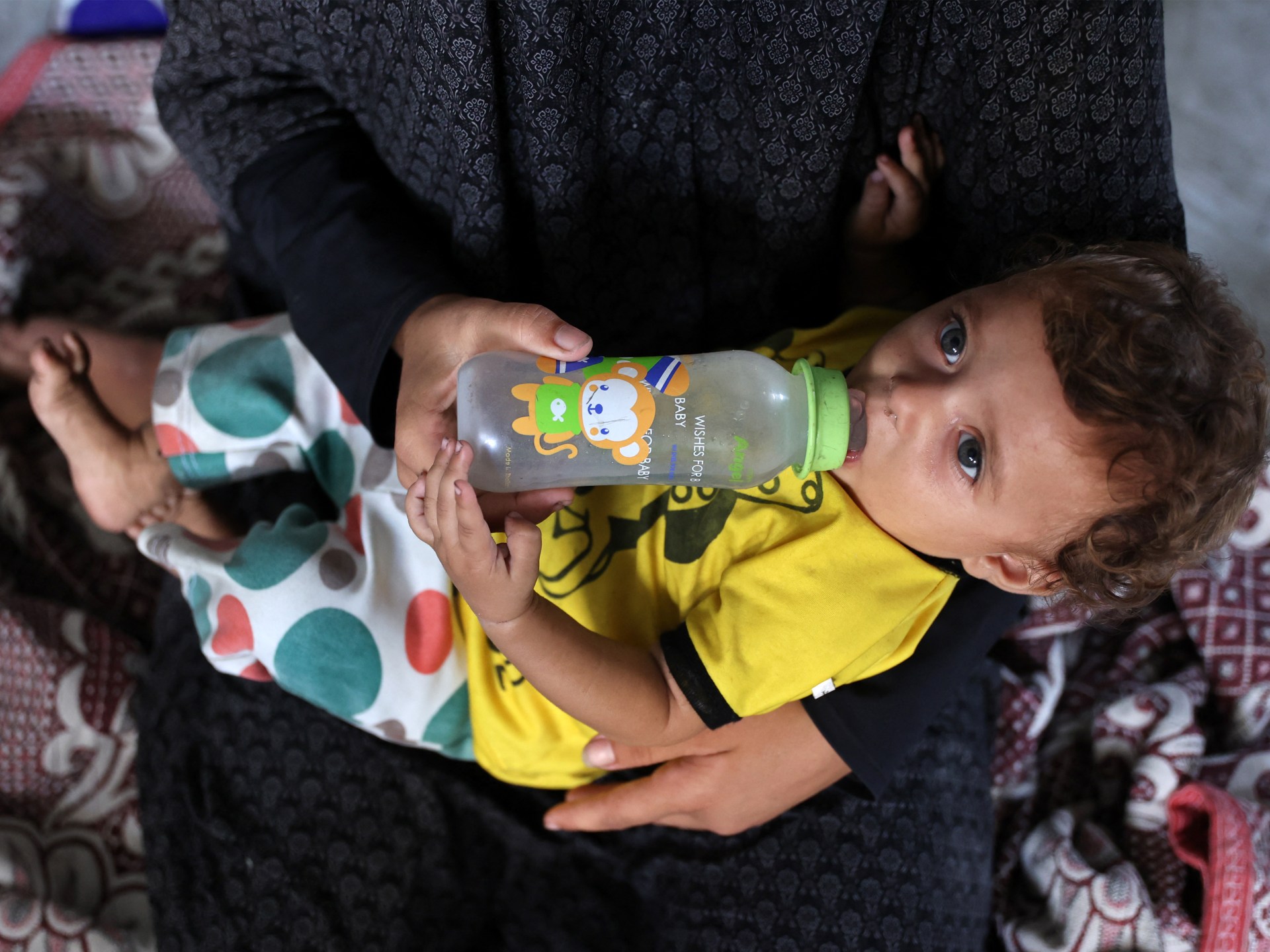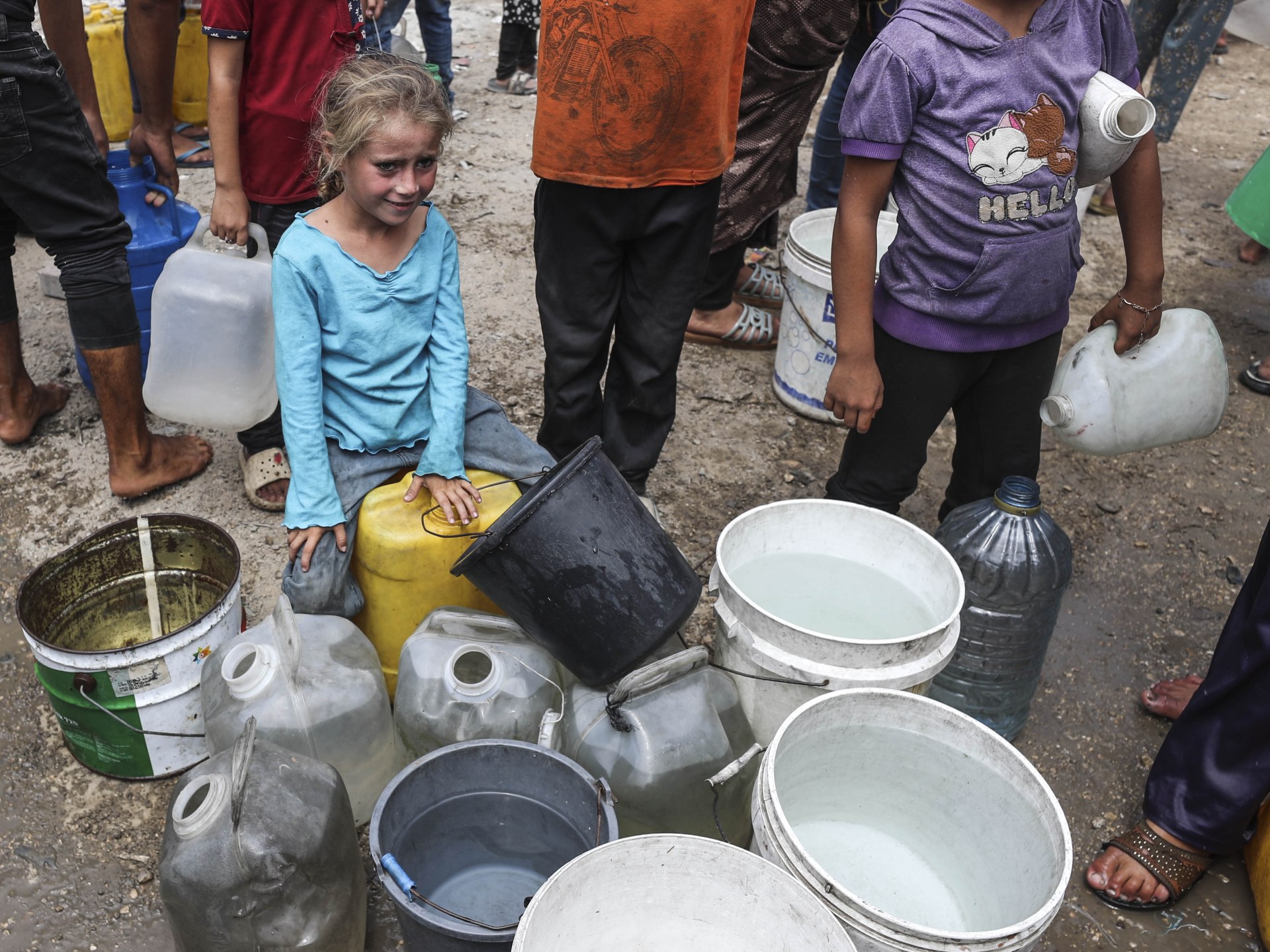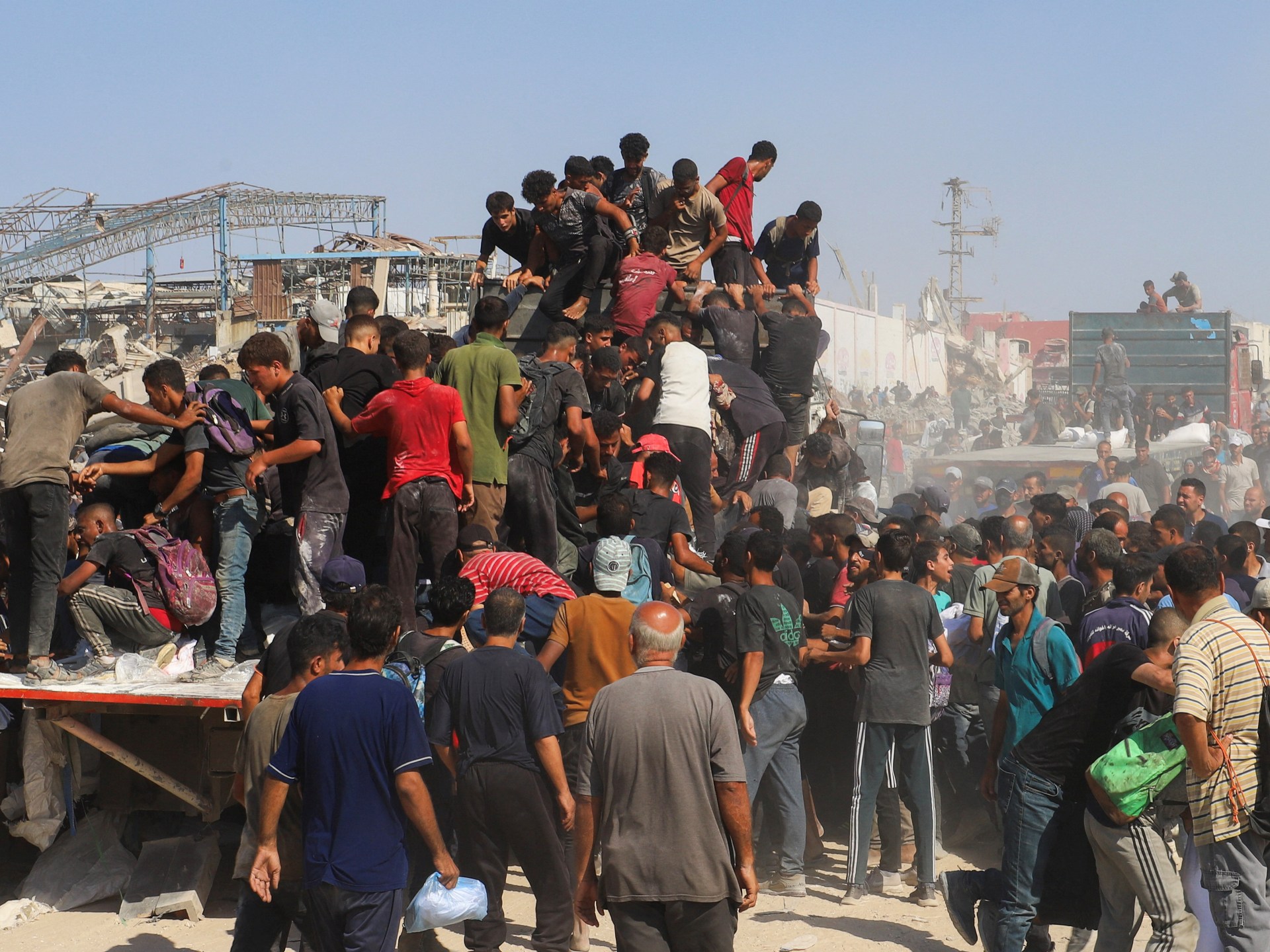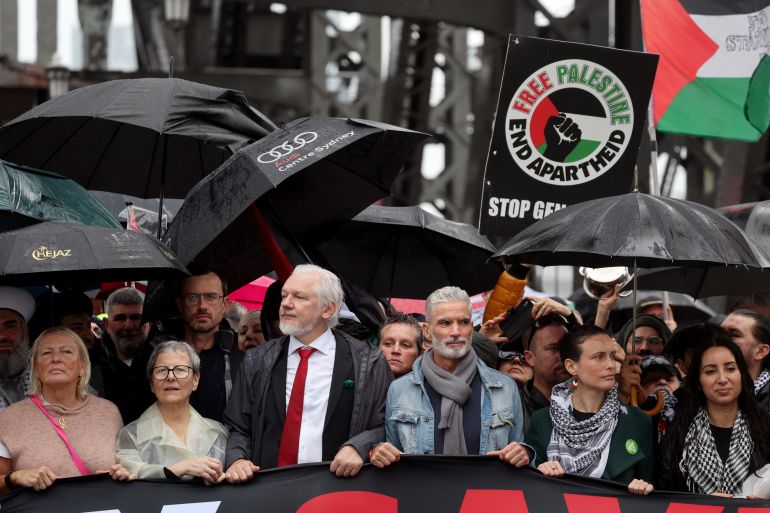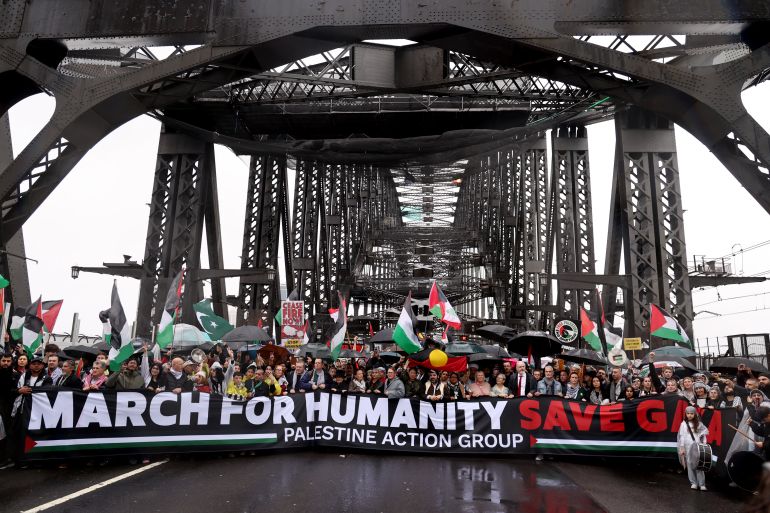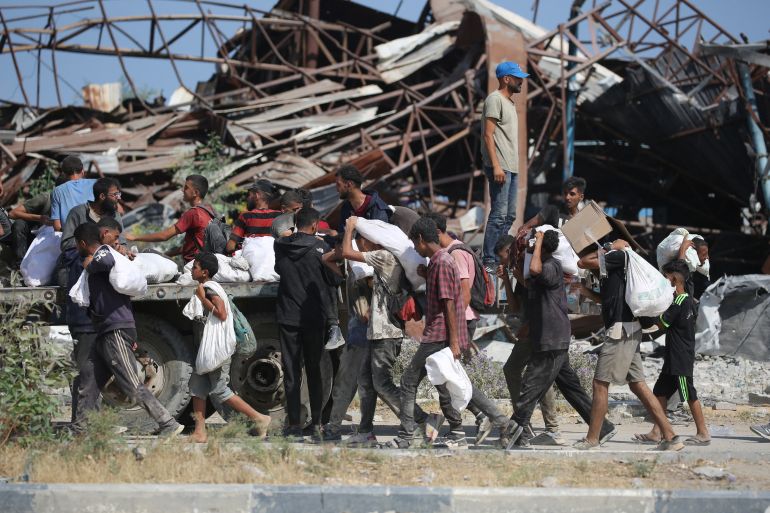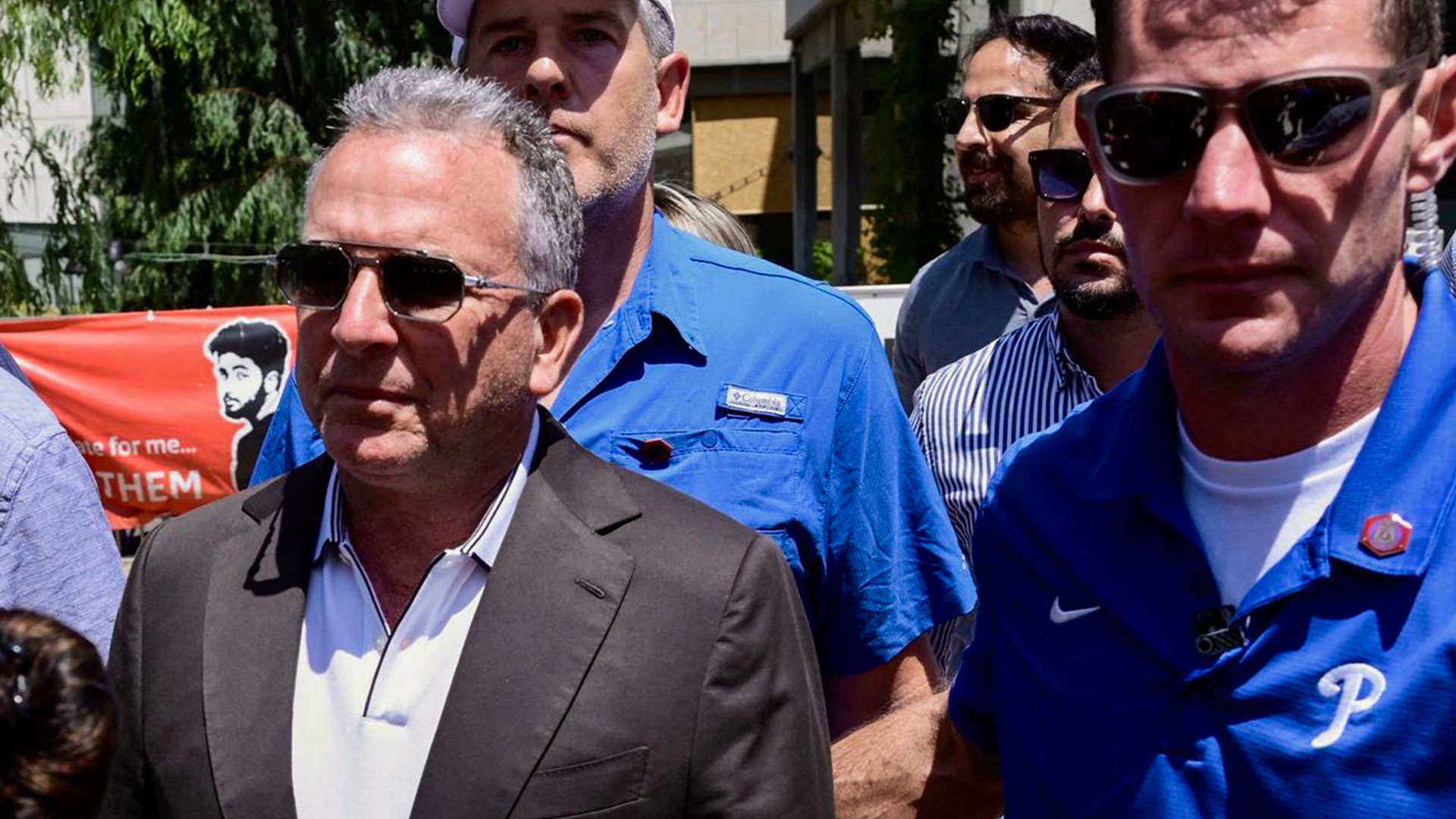At least 20 Palestinians killed after aid truck overturns in central Gaza | Israel-Palestine conflict News
Vehicle overturned after Israeli forces directed it down an ‘unsafe road’, local officials tell WAFA news agency.
At least 20 Palestinians have been killed and many injured after a truck carrying humanitarian aid overturned onto a crowd of people in central Gaza, according to the Government Media Office in the enclave.
The incident occurred on Wednesday as large numbers of Palestinians gathered in central Gaza in search of food and basic supplies, amid an increasingly dire humanitarian crisis.
Local officials quoted by the official Palestinian news agency Wafa said the vehicle overturned after Israeli forces directed it down what they described as an “unsafe road”.
Gaza Civil Defence spokesman Mahmud Bassal said that 20 people were killed and dozens were wounded in the incident while hundreds of civilians were waiting for aid, the AFP news agency reported.
“Despite the recent limited allowance of a few aid trucks, the occupation deliberately obstructs the safe passage and distribution of this aid,” the Gaza Government Media Office said in a statement.
“It forces drivers to navigate routes overcrowded with starving civilians who have been waiting for weeks for the most basic necessities. This often results in desperate crowds swarming the trucks and forcibly seizing their contents.”
The incident comes as humanitarian organisations warn of famine and disease spreading across the enclave, while deaths from starvation and malnutrition continue to rise.
At least three people died from malnutrition on Wednesday, medical sources told Al Jazeera. A source at al-Shifa Hospital in northern Gaza confirmed that Hiba Yasser Abu Naji, a child, died from malnutrition. An infant also died from malnutrition, according to the source. An adult from Jabalia was also reported to have died as a result of malnutrition.
On Monday, the Israeli military permitted 95 aid trucks to enter Gaza – a figure far below the 600 trucks a day needed to meet basic requirements, according to UNRWA. The current daily average is 85 trucks.
Meanwhile, Palestinians approaching aid distribution sites run by the notorious GHF have frequently come under Israeli fire since the organisation launched operations in late May. Such shootings have become near-daily occurrences near its sites in central and southern Gaza.
Jens Laerke, a spokesperson for OCHA, said that while some aid was entering the enclave, “there should be hundreds and hundreds of trucks entering Gaza every day for months or years to come.
“People are dying every day. This is a crisis on the brink of famine,” he said, adding that tonnes of life-saving aid remain stuck at border crossings due to bureaucratic delays and a lack of safe access.
Elsewhere in Gaza, several Palestinians were killed in Israeli attacks across the enclave.
Al-Awda Hospital reported that five people – including a woman and two children – were killed, and others wounded, in an Israeli raid on a house north of the Nuseirat refugee camp.
Four more people were killed in an Israeli raid on two homes in the Shujayea neighbourhood of Gaza City.
